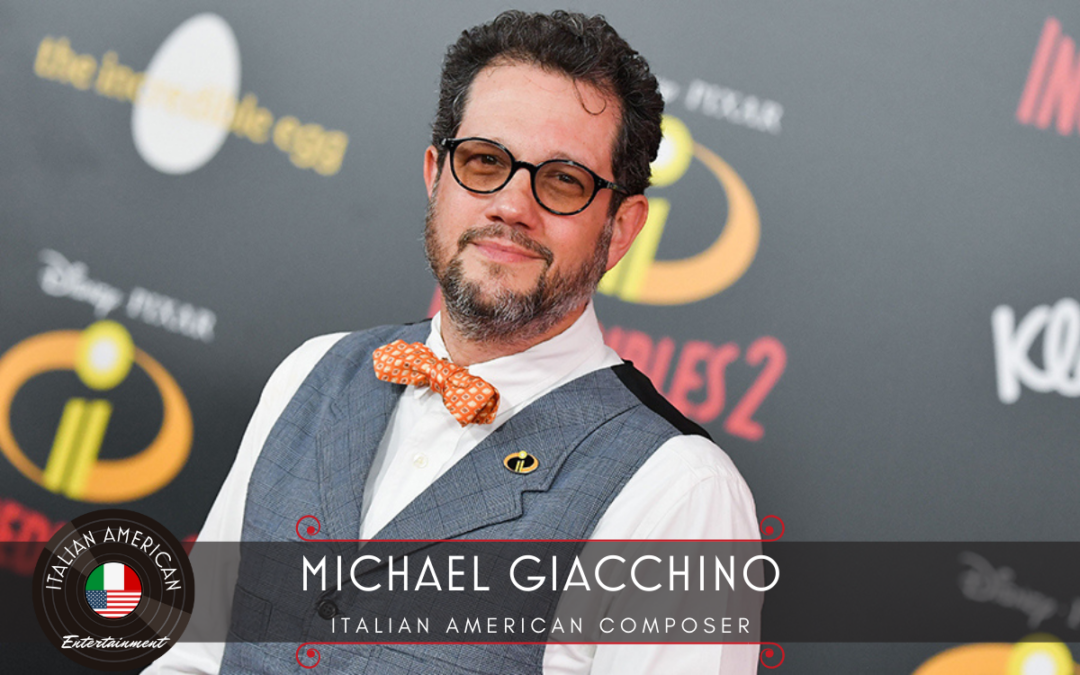Michael Giacchino was born in Riverside Township, New Jersey in 1967. His father’s ancestors were Italian immigrants from Sicily and his mother’s ancestors emigrated from Abruzzo; he holds dual American and Italian citizenship.
Giacchino began combining images and music at age 10, when he began creating stop-motion animation with homemade soundtracks in his basement. While in high school, an art teacher who mentored Giacchino recommended to his parents that he attend the School of Visual Arts in New York City. Giacchino enrolled at SVA, majoring in film production and minoring in history. During his final year at SVA, his instructor in film publicity announced an unpaid internship was available at Universal Pictures. Giacchino, who was the only one interested, obtained the six-month position, which he filled at night while attending school during the day and working at Macy’s to pay his rent. He graduated from SVA in 1990 with a Bachelor of Fine Arts, after which he took music classes at the Juilliard School.
When Giacchino’s internship ended, Universal hired him, giving him a job upon graduation from college. He later moved to Disney, and when Disney relocated to Los Angeles, Giacchino moved with them, working in publicity, while taking night classes in instrumentation and orchestration at UCLA. His work for Disney had him interacting with the various personnel who worked in films, such as the producers who hired composers, so when a job at Disney Interactive opened for a producer, Giacchino obtained the job, thinking he could hire himself to write music for the games he produced.
Giacchino’s composition work for Disney Interactive during the 16-bit era included the Sega Genesis game Gargoyles, the SNES game Maui Mallard in Cold Shadow and the various console versions of The Lion King. However his first major composition was for the DreamWorks video game adaptation of the 1997 movie, The Lost World: Jurassic Park. The video game was one of the first PlayStation- (also on Sega Saturn) console titles to be recorded with an original live orchestral score. Giacchino has since continued his relationship with DreamWorks which also included composing the score for the Small Soldiers video game in 1998, providing full orchestral scores for many of their popular video games. Giacchino’s award-winning compositions covers the first four installments of the Medal of Honor series, (Medal of Honor, Underground, Allied Assault and Frontline), Heroes: 2, and Medal of Honor: Airborne and also the scores for several other World War II-related video games like Secret Weapons Over Normandy, Call of Duty and Call of Duty: Finest Hour.
Giacchino’s work on various video games led to his entrance into television. In 2001, J. J. Abrams, producer of the television series Alias, discovered Giacchino through his video game work and asked him to provide the new show’s soundtrack. The soundtrack featured a mix of full orchestral pieces frequently intermingled with upbeat electronic music, a departure from much of his previous work. Giacchino would go on to provide the score for J. J. Abrams’s 2004 television series Lost,] creating an acclaimed score which employed a unique process of using spare pieces of a plane fuselage for percussion parts. The score for Lost is also notable for a signature thematic motif: a brass fall-off at the end of certain themes.
In 2004, Giacchino received his first big feature film commission. Brad Bird, director of Pixar’s The Incredibles, asked Giacchino to provide the soundtrack for the film after having heard his work on Alias. The upbeat jazz orchestral sound was a departure in style not only for Giacchino but for Pixar, which had previously relied on Randy and Thomas Newman for all of its films. Giacchino was nominated for two Grammy Awards in 2005 for The Incredibles: Best Score Soundtrack Album for Motion Picture, Television or Other Visual Media and Best Instrumental Composition.
Giacchino’s next musical achievement was his Paris-inspired score for the Disney-Pixar film Ratatouille, which includes the theme song “Le Festin”, performed by French artist Camille. He received his first Academy Award nomination for this score. He also created the score for Abrams’ 2009 Star Trek film. Giacchino scored the Pixar film Up, for which he collaborated with director Pete Docter. This marked the first time Giacchino worked with a Pixar director other than Brad Bird. This work gained Giacchino his first Academy Award for Best Original Score: the first-ever win for Pixar in that category.
In 2016, Giacchino composed the score for the Marvel film Doctor Strange, as well as the score for the Disney film Zootopia. In September 2016, it was announced that Giacchino had been chosen to replace composer Alexandre Desplat as the composer for the Star Wars anthology film Rogue One after Desplat was unavailable following reshoots. Giacchino then scored two more Marvel films, 2017’s Spider-Man: Homecoming and its sequel, 2019’s Spider-Man: Far From Home.
Giacchino returned to Pixar to score Coco (2017) and Incredibles 2 (2018). He also composed the score for Taika Waititi’s Jojo Rabbit. In 2021, Giacchino will re-team with Matt Reeves to score The Batman.
Source: Wiki

